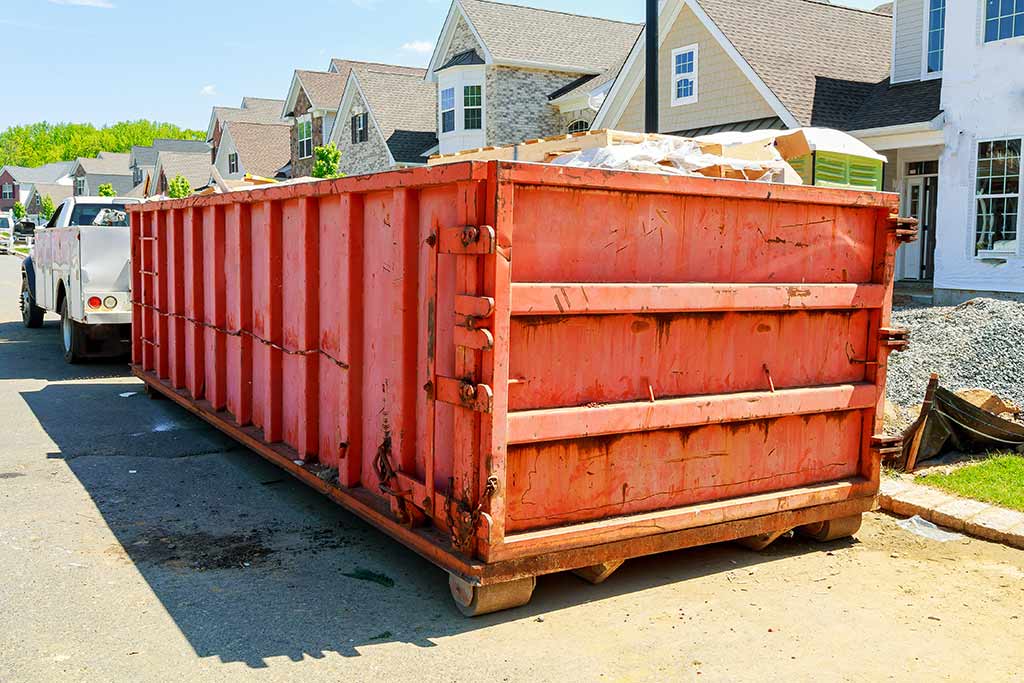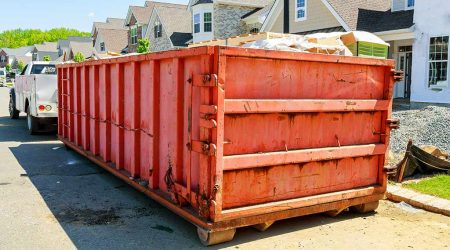A waste management program for residential construction with roll-off dumpsters is an organized approach to managing and minimizing waste generated during the construction, renovation, or demolition of residential buildings. This program is essential for environmental conservation, regulatory compliance, and cost-efficiency. Here’s an outline of such a program:

Waste Assessment and Planning
Initial Audit: Before construction begins, conduct an audit to estimate the types and volumes of waste that will be generated, considering different phases of construction.
Waste Management Plan: Based on the audit, develop a detailed plan outlining waste reduction, reuse, recycling, and disposal methods. This plan should also include the selection of appropriate sizes and numbers of roll-off dumpsters for different types of waste (e.g., concrete, wood, metal, drywall).
Waste Segregation and Collection
Segregation at Source: Set up clearly labeled roll-off dumpsters for different waste streams (e.g., recyclables, landfill waste) to facilitate segregation at the source.
Proper Sizing and Placement: Choose dumpsters of sizes that match the waste volume estimates and place them at convenient locations to encourage compliance among workers
Waste Reduction and Reuse
Materials Optimization: Use construction techniques that minimize waste, such as precise measurement and modular construction.
Reuse: Encourage the reuse of materials whenever possible, both on-site and off-site. For example, unused or salvaged materials can be used in other projects or donated.
Recycling
On-site and Off-site Recycling: Partner with local recycling facilities to ensure that recyclable materials like wood, metal, and concrete are properly processed. Some materials may be recycled on-site for different uses.
Hazardous Waste Management: Properly identify, segregate, and dispose of hazardous waste according to local regulations.
Training and Communication
Worker Training: Provide training for all workers on waste management policies and procedures to ensure compliance.
Signage and Information: Use signs and informational materials to remind workers of the waste management plan and the location of different dumpsters.
Monitoring and Reporting
Waste Tracking: Keep records of the amounts and types of waste generated and diverted from landfills through reuse and recycling efforts.
Continuous Improvement: Regularly review and adjust the waste management plan based on performance metrics and lessons learned during the project.
Compliance and Certification
Regulatory Compliance: Ensure that all waste disposal methods comply with local, state, and federal regulations.
Green Certifications: Consider obtaining certifications (e.g., LEED) that recognize sustainable building practices, including efficient waste management.
Implementing a waste management program requires collaboration among all project stakeholders, including contractors, workers, waste haulers, and recycling facilities. The effective use of roll-off dumpsters, combined with a comprehensive approach to waste reduction, segregation, and recycling, can significantly minimize the environmental impact of residential construction projects.




